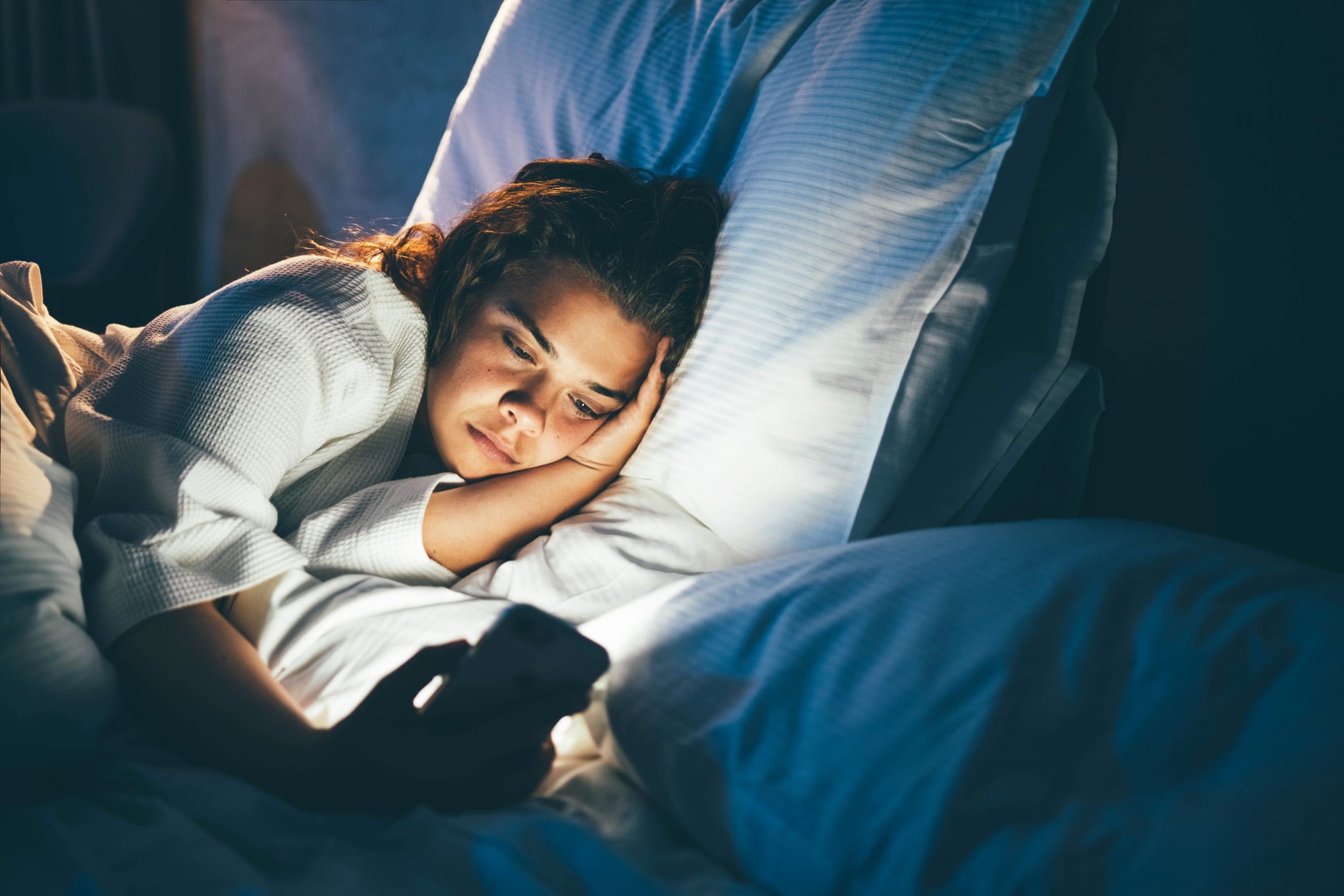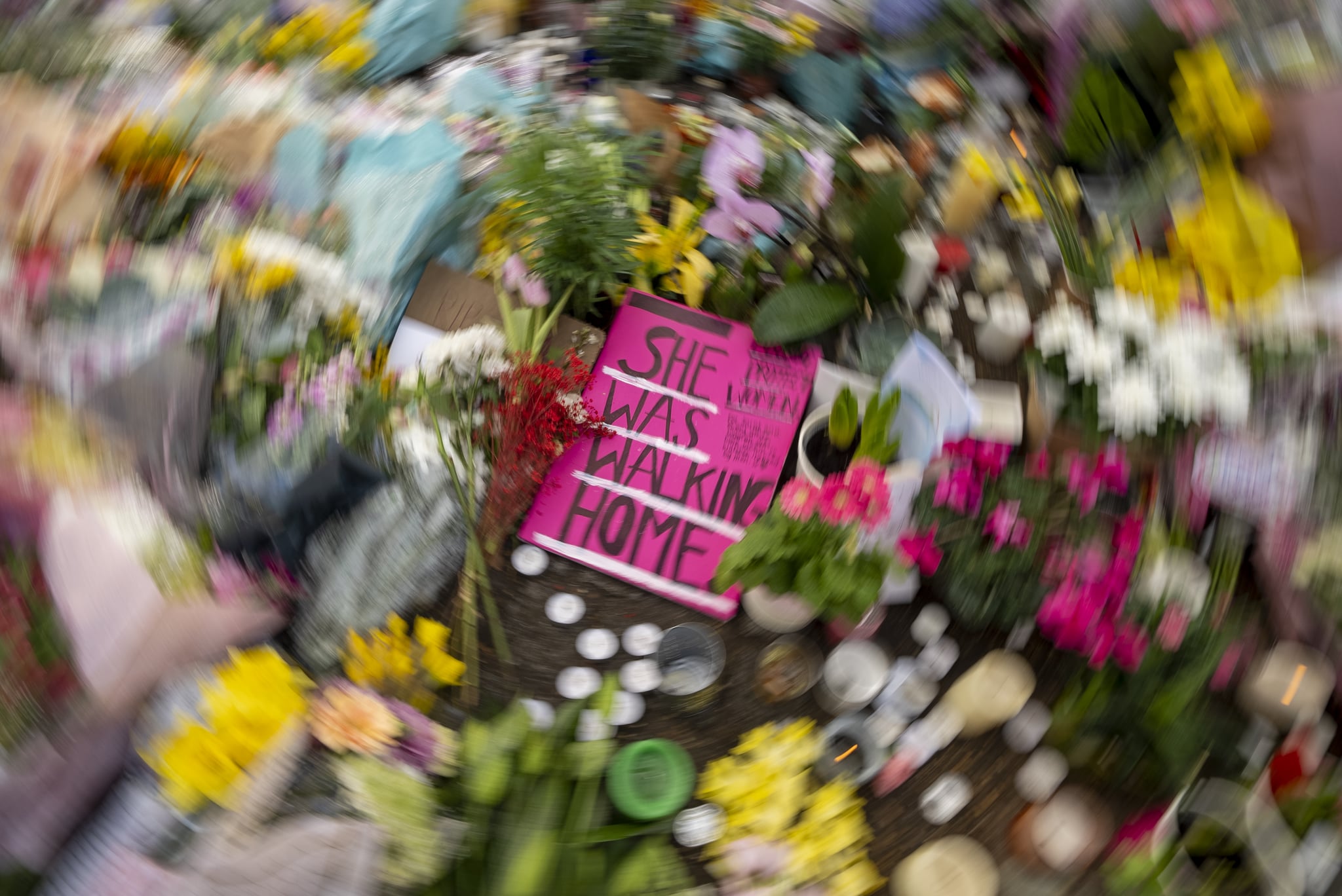What Is Apple's New Check In Feature For iPhones?
Apple’s New iPhone Feature Spotlights Women’s Safety, but It Being Necessary Is the Problem

"Text me when you get home" are the six words ingrained into most women's behaviour. Yet the seemingly innocent sentence carries a sinister weight. Soon after the tragic death of 33-year-old Sarah Everard in March 2021, who was reported missing and later found murdered when walking home at around 9.30 pm, women up and down the country were overwhelmed with grief and anger.
Among the visceral feelings being expressed on social media was one that soon went viral. A post by Lucy Mountain with an image of a text reading that common phrase. She captioned her post with a lengthy explanation that these actions are autopilot for most women because we do not feel safe on our streets. "I wish more men understood the fact that we cannot walk alone at night with headphones in. That whenever we get in Ubers, there's the lingering thought this could be it," she wrote.
Thousands shared the post online. Group chats became alight with outrage that this is something we all just do. Women took to the streets in protest. Feelings were further heightened months later with the death of Sabrina Nessa, who was murdered walking through the park at 8.30pm. And yet, two years on, we're still sending the same messages.
I always, without fail, ask my friend's to let me know when they get home safely, yet I hadn't given my automated request much thought until that viral post. Subconsciously, I had always known it's not a safe world for women. I, like so many others, have felt my heartbeat quicken on a lamplit street after a night out. And I have laid in bed in a blind panic when I haven't heard from my friends, telling myself they've fallen asleep, they've just forgotten to let me know, they've stopped at McDonalds for a Big Mac, but deep down fearing the worst.

Fortunately, all of the above was always the answer, but that doesn't stop my mind going into overdrive. Which is why, when I heard about Apple's new iOS 17 update, I felt a strange kind of solace. The brand has launched, among hundreds of innovative enhancements, a "Check In" feature. While it doesn't explicitly claim that the introduction of the new feature is in response to women's safety, I can't help but think it's the main driver.
iPhone users can now start a "Check In" on iMessage with a family member or friend, which lets them know when you've arrived at your destination. It has the ability to detect when you've got there and sends them a message automatically. So, if friends do forget to text in favour of sleep, you will still be notified.
Plus, it's clever enough to have catered for time delays. If you're stuck in traffic, for instance, for over 15 minutes, or after you're expected at your destination, you will be nudged by the feature to ask if you're ok. If there's no response, your current location, battery, and signal status will be shared with your loved one so they can determine what the issue might be.
There's no denying this is impressive; a practical feature that could literally be the difference between life and death. But the soul-destroying aspect is that it is necessary.
There's also a time duration option that can be set up if, for example, you're home alone and someone is coming to fix something. Or you're on a Tinder date. You can "Check In" with a loved one when they are gone to let them know you are safe. For privacy, the data shared remains private between the two who agreed to the "Check In", is end-to-end encrypted, and the user can choose which details to share.
There's no denying this is impressive; a practical feature that could literally be the difference between life and death. But the soul-destroying aspect is that it is necessary. The onus is still on women to manage their own safety, rather than educating the men creating the threats. What made Everard's death all the more terrifying was that her murder was conducted by a police officer. The culture of sexism in the police force needs to be addressed and violence against women has to be tackled without putting blame on the victims. But until these systemic problems are confronted, we have to rely on technology.
While I applaud the "Check In" feature on iPhones and have no doubt that it will help put the mind at rest for many, its necessity still leaves me feeling uneasy. It's by no means the answer. Yet, until we can leave a bar at night without the fear of the evening taking a dark turn, I'll be creating a new iPhone sticker to respond to the news that my friends got home safely.


